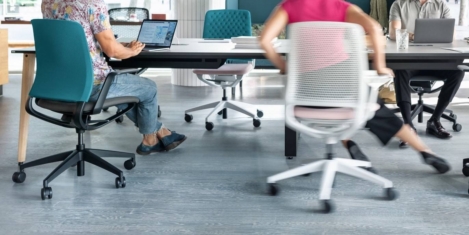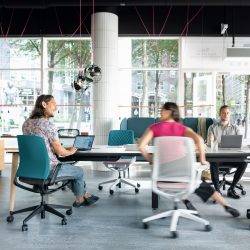To provide the best experiences, we use technologies like cookies to store and/or access device information. Consenting to these technologies will allow us to process data such as browsing behaviour or unique IDs on this site. Not consenting or withdrawing consent, may adversely affect certain features and functions.
The technical storage or access is strictly necessary for the legitimate purpose of enabling the use of a specific service explicitly requested by the subscriber or user, or for the sole purpose of carrying out the transmission of a communication over an electronic communications network.
The technical storage or access is necessary for the legitimate purpose of storing preferences that are not requested by the subscriber or user.
The technical storage or access that is used exclusively for statistical purposes.
The technical storage or access that is used exclusively for anonymous statistical purposes. Without a subpoena, voluntary compliance on the part of your Internet Service Provider, or additional records from a third party, information stored or retrieved for this purpose alone cannot usually be used to identify you.
The technical storage or access is required to create user profiles to send advertising, or to track the user on a website or across several websites for similar marketing purposes.
 The Council on Tall Buildings and Urban Habitat (CTBUH) has announced the winners of the 17th Annual CTBUH Awards Program. These winning projects – comprising tall buildings, urban developments, and technical innovations – competed for winning distinctions at the 2019 Tall + Urban Innovation Conference from April 8–10 in Shenzhen. The CTBUH Awards Jury has named Salesforce Tower in San Francisco designed by Pelli Clarke Pelli as the “Best Tall Building Worldwide”, in addition to naming Category Winners across 20 award categories. (more…)
The Council on Tall Buildings and Urban Habitat (CTBUH) has announced the winners of the 17th Annual CTBUH Awards Program. These winning projects – comprising tall buildings, urban developments, and technical innovations – competed for winning distinctions at the 2019 Tall + Urban Innovation Conference from April 8–10 in Shenzhen. The CTBUH Awards Jury has named Salesforce Tower in San Francisco designed by Pelli Clarke Pelli as the “Best Tall Building Worldwide”, in addition to naming Category Winners across 20 award categories. (more…)










 Employers need to be mindful of the significant differences globally in how mental health is viewed and treated, when it comes to managing an international workforce, according to
Employers need to be mindful of the significant differences globally in how mental health is viewed and treated, when it comes to managing an international workforce, according to 



 Insecure managers who worry that their performance could be undermined by competent subordinates can end up ostracising talented employees they feel are a threat to their own position. According to an paper published in
Insecure managers who worry that their performance could be undermined by competent subordinates can end up ostracising talented employees they feel are a threat to their own position. According to an paper published in 


















April 11, 2019
What lift design tells us about who we are and how we work
by Mark Eltringham • Comment, Facilities management, Workplace design
(more…)